
Top 32 Simon Winchester Quotes
#1. To be perfectly honest the old habits, specifically deadlines, still very much inform what I do. I am brutally disciplined about getting manuscripts in on time.
Simon Winchester
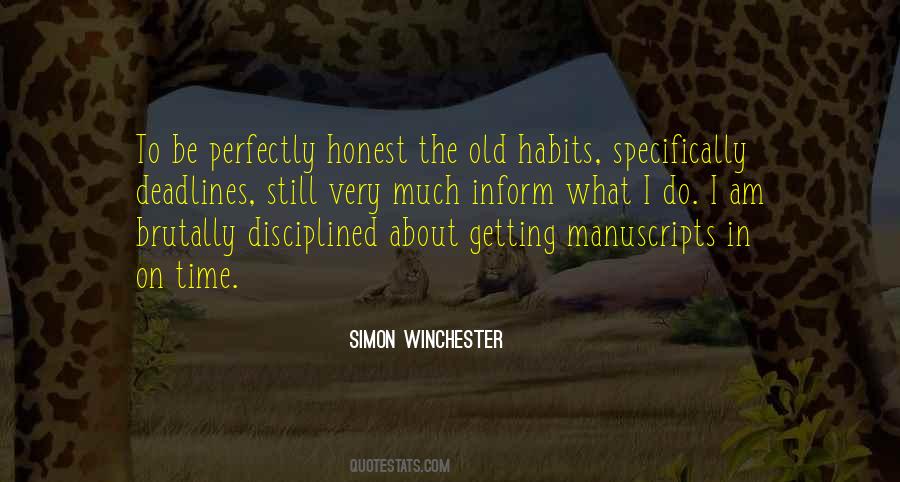
#2. The cities of the eastern American fall line are well known today - Baltimore, Washington, Richmond, Fredericksburg, Philadelphia - even though the part that the very similar accidents of geology and river behavior played in their origins may have been long forgotten.
Simon Winchester
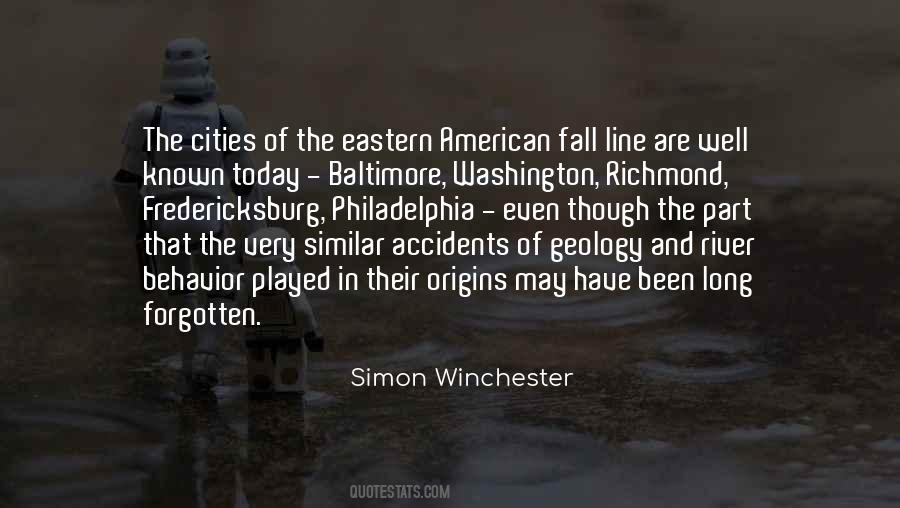
#3. I do as much bookish research as I can but when I sit down to write, often I think, 'Wait, I was there.' That is one of the great advantages of having wandered around the world and lived in so many places and met such fascinating people.
Simon Winchester

#4. An end to timidity - the replacement of the philologically tentative by the lexicographically decisive. - on the making of the Oxford English Dictionary
Simon Winchester

#5. We associate the North Atlantic with cod. The motto of Newfoundland used to be 'In cod we trust.' It was a joke, but it was essentially true. But there is no cod anymore. And that's extraordinary. It's all because of either greed or politics - Canadian politics.
Simon Winchester
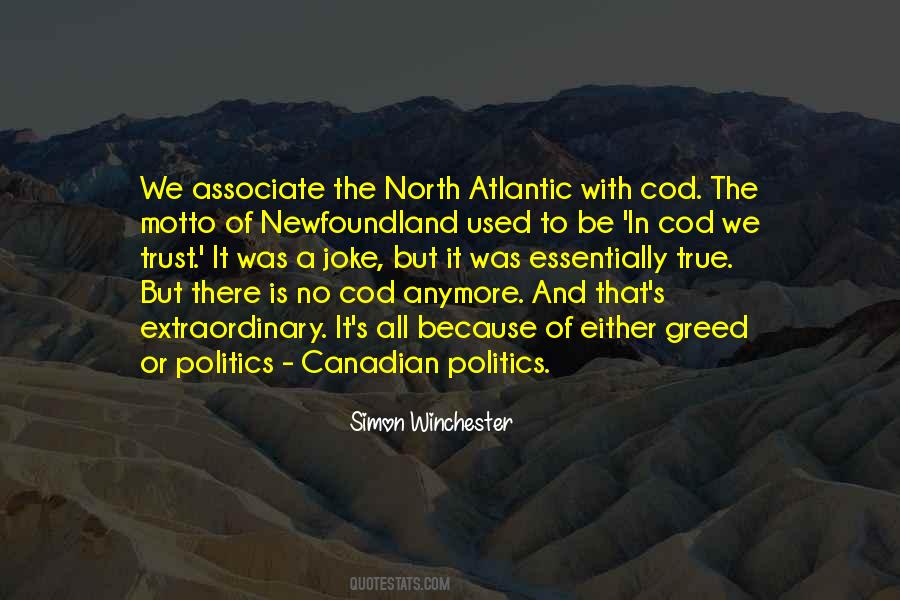
#6. We should all live in central or southwest Queensland in Australia, which is geologically stable. Or Kansas or Nebraska, because it's relatively geologically stable. I am sure there is no emergency plan for Topeka.
Simon Winchester
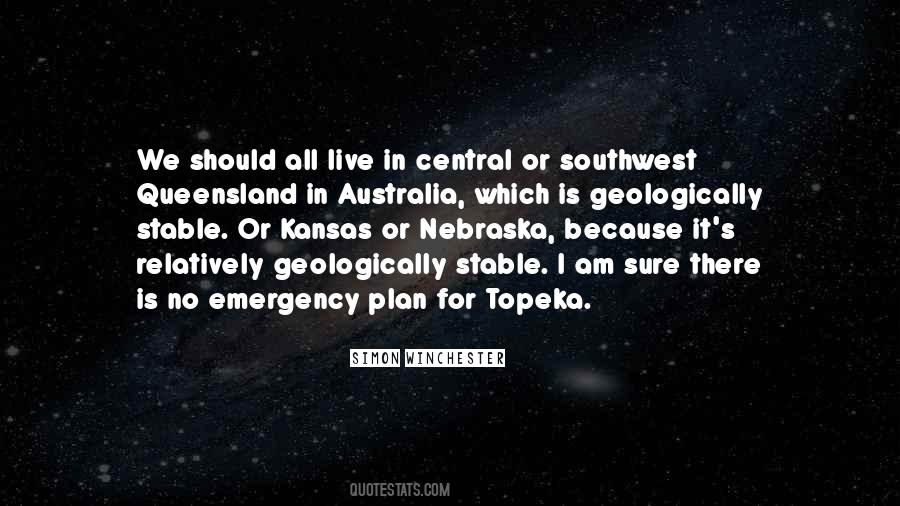
#7. Railroads brought about lasting social effects, as well. The companies' ruthless attention to keeping time impelled passengers to carry pocket watches,* and led to the eventual establishment of time zones.
Simon Winchester
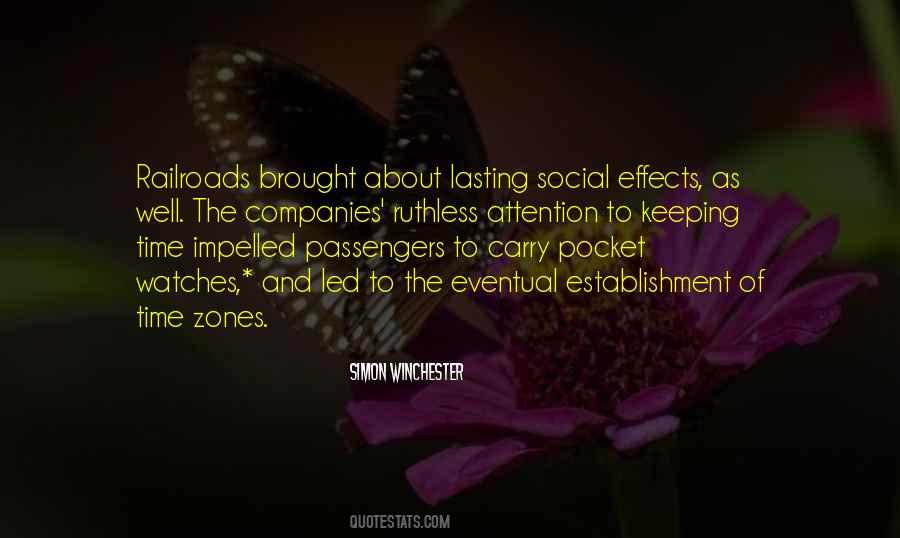
#8. So research is a terribly imperfect science, and you learn an awful lot more after you've published a book, because people keep writing to you and saying, 'Oh, gosh, I was related to such and such a character and I have a letter in my possession.'
Simon Winchester
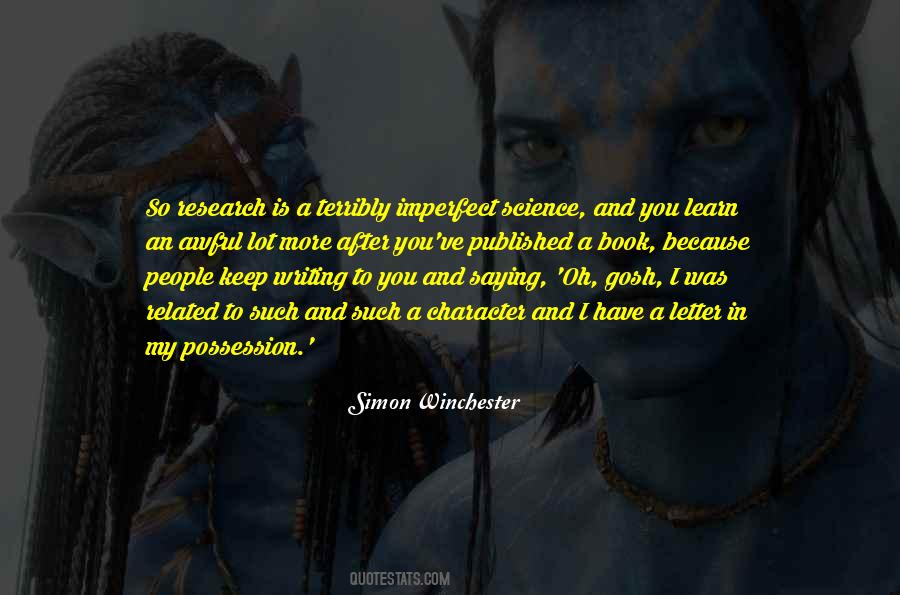
#9. The first vehicle was an unmanned two-ton, hundred-thousand-dollar steel-caged contraption named ANGUS (for Acoustically Navigated Geophysical Underwater System), which had powerful strobe lights, a collection of thermometers, and, most critically, high-definition cameras. Late
Simon Winchester
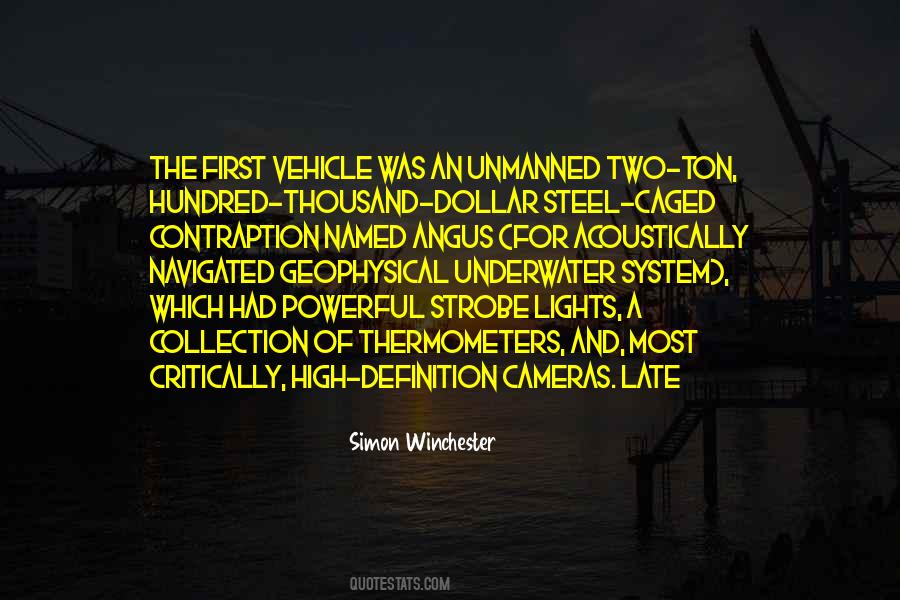
#10. The very name Impressionism is taken from an Atlantic Ocean painting - that of Monet, of sunrise in the harbor of Le Havre, done in 1872.
Simon Winchester
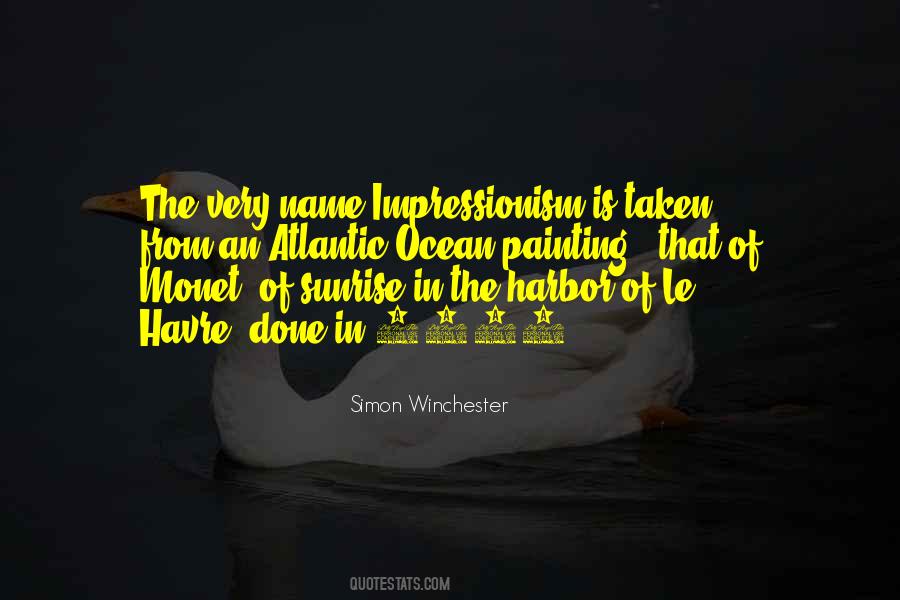
#11. Millions upon millions of people came here full of hope and aspiration to this extraordinary land of liberty and opportunity, and helped build the United States. So the Atlantic Ocean was absolutely critical to the story of America.
Simon Winchester
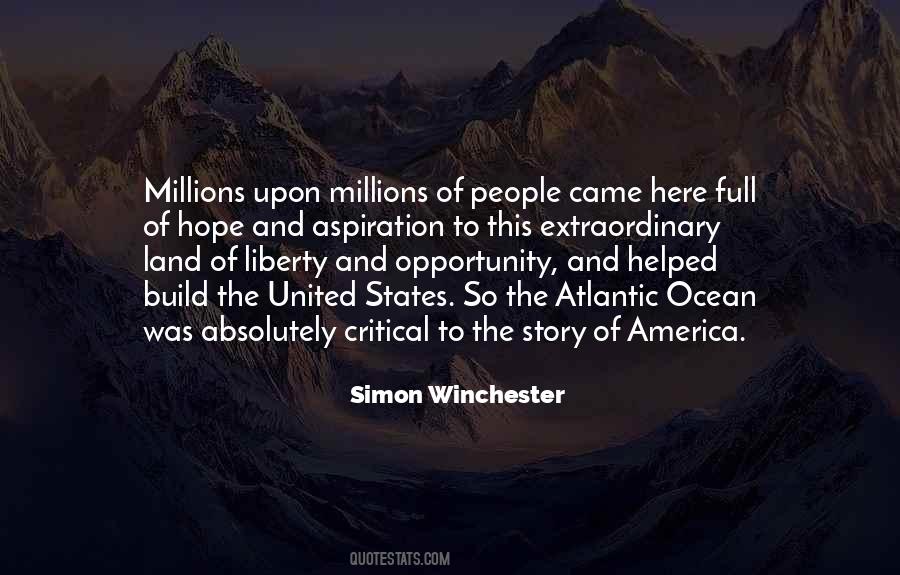
#12. One newcomer, asked why he had killed his wife and children, told the superintendent: I don't know why I am telling you all of this. It's none of your business As a matter of fact it was none of the judge's business either. It was a purely family affair.
Simon Winchester

#13. Was the heroic creation of a legion of interested and enthusiastic men and women of wide general knowledge and interest; and it lives on today, just as lives the language of which it rightly claims to be a portrait.
Simon Winchester
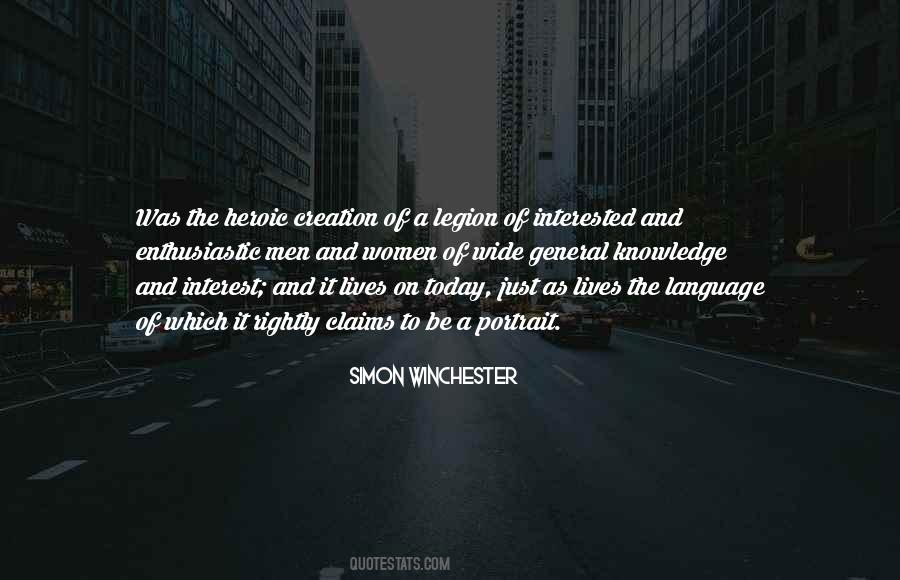
#14. And after that, and also for each word, there should be sentences that show the twists and turns of meanings - the way almost every word slips in its silvery, fishlike way, weaving this way and that, adding subtleties of nuance to itself, and then perhaps shedding them as public mood dictates.
Simon Winchester
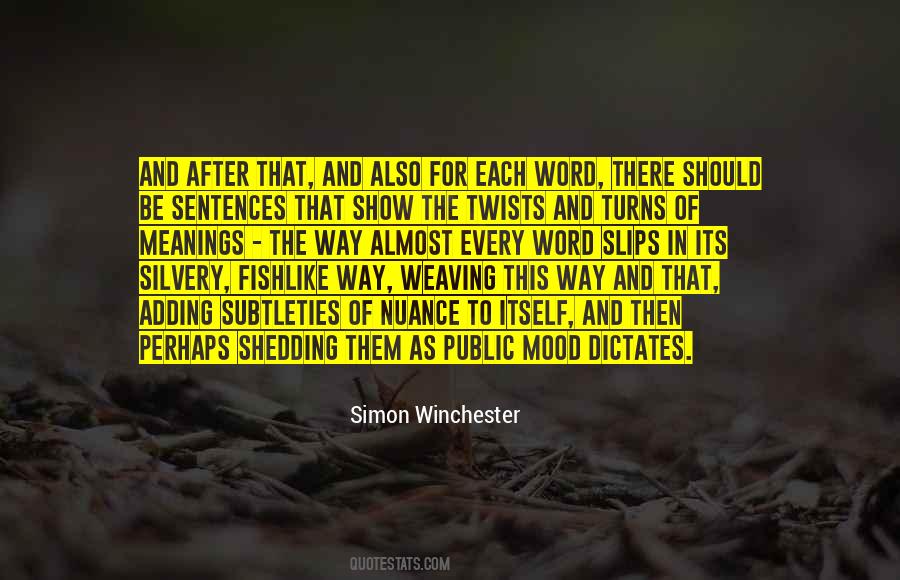
#15. Our histories, our novels, our poems, our plays - they are all in this one book.
Simon Winchester
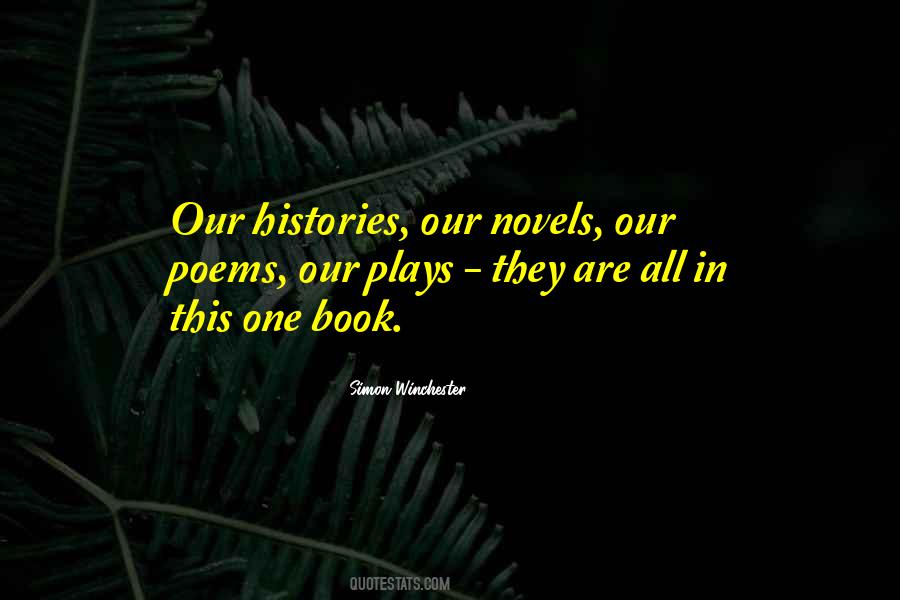
#16. The language should be accorded just the same dignity and respect as those other standards that science was then also defining.
Simon Winchester
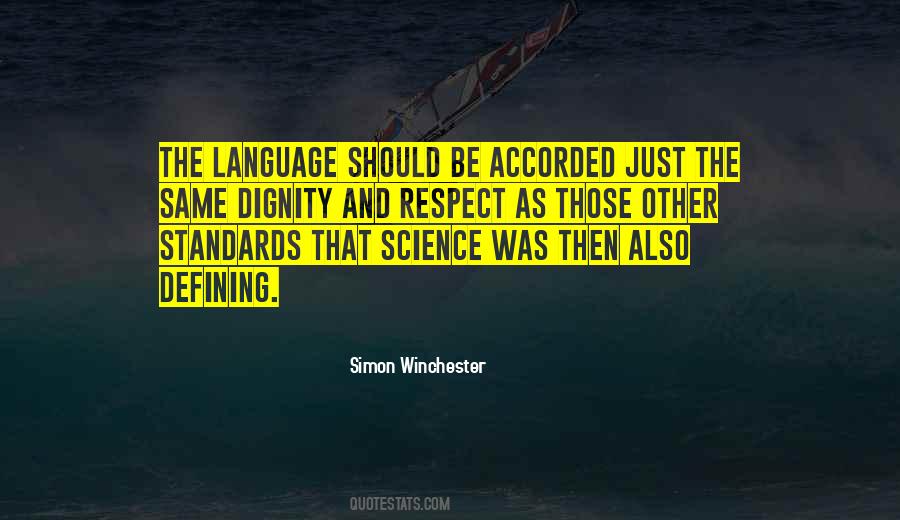
#17. I find the science behind major natural events almost more interesting than the way in which those same events wreak their effects on human society.
Simon Winchester
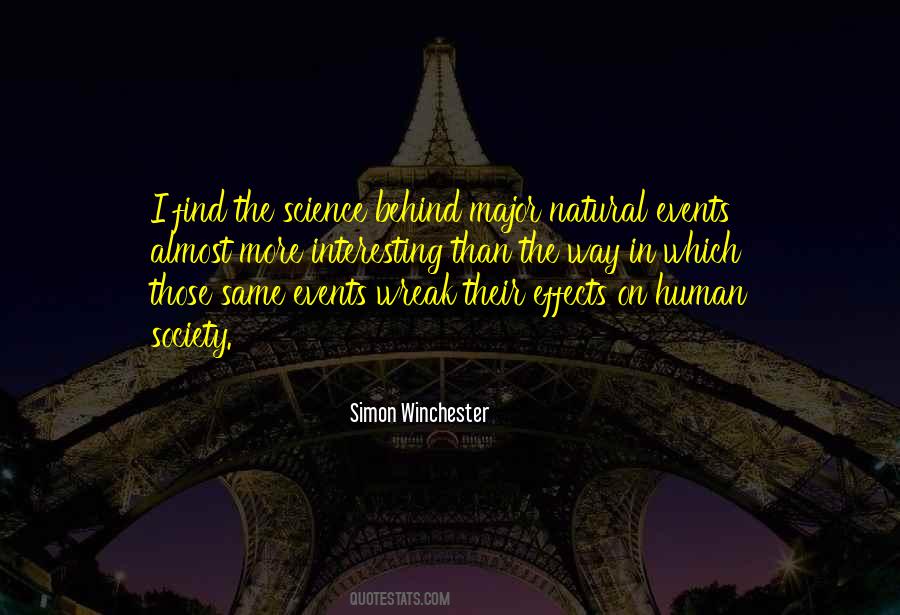
#18. Any grand new dictionary ought itself to be a democratic product, a book that demonstrated the primacy of individual freedoms, of the notion that one could use words freely, as one liked, without hard and fast rules of lexical conduct.
Simon Winchester

#19. The English language was spoken and written - but at the time of Shakespeare it was not defined, not fixed. It was like the air - it was taken for granted, the medium that enveloped and defined all Britons. But as to exactly what it was, what its components were - who knew?
Simon Winchester
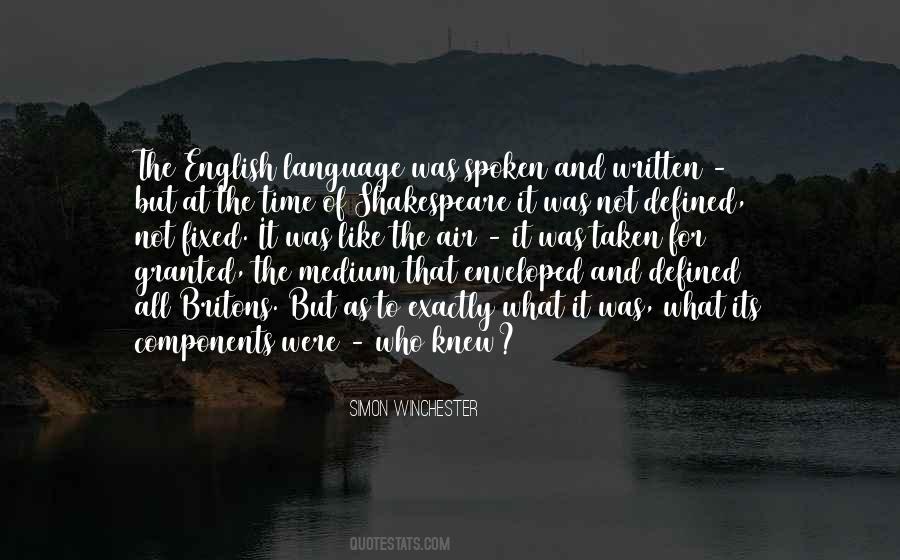
#20. My wife is very interested in fashion. I am absolutely not. I couldn't give a toss. Fashion is a perfectly valid thing to be interested in. I'm just not particularly interested in pop culture. I think I am more interested in things that have a settled permanence about them.
Simon Winchester

#21. God - who in that part of London society was of course firmly held to be an Englishman - naturally approved the spread of the language as an essential imperial device;
Simon Winchester

#22. The nature of catastrophe is, after all, reasonably unvarying in the way it ruins, destroys, wounds and devastates. But if something can be learned from the event - not least something as profound as the theory of plate tectonics - then it somehow puts the ruination into a much more positive light.
Simon Winchester

#24. I think they will never really enjoy true democracy in China.
Simon Winchester

#25. Why do we as a people choose to live in beautiful and risky places? Beautiful places are relatively dangerous; the forces that made them beautiful are the same forces that will ultimately destroy them.
Simon Winchester

#26. The northeast trade winds that blow at a steady fifteen knots onto the cliffs and reefs of the islands' lee shores produce endless trains of eminently glidable waves.
Simon Winchester
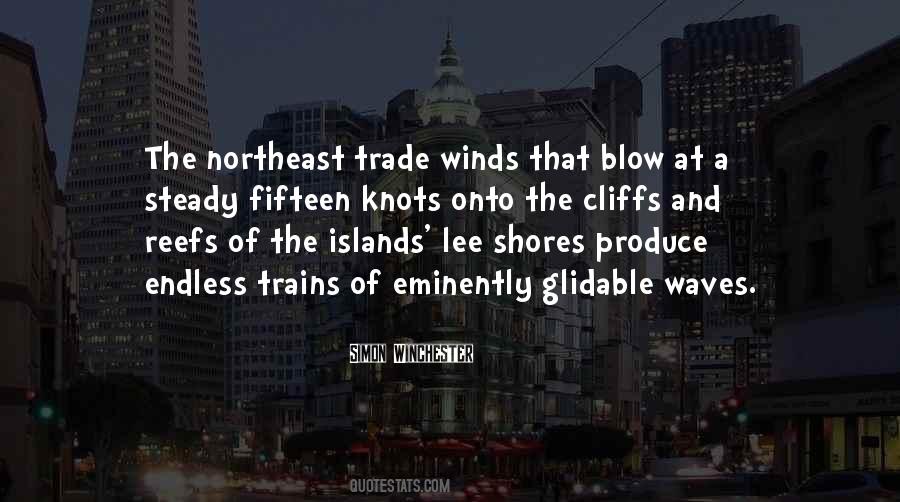
#27. The most difficult task for anyone wandering through a foreign land with the hope of gaining some insight into it is the profound need to come to terms with the lives and thoughts of strangers.
Simon Winchester

#28. I don't hero worship for the sake of hero worship. When I find people who are truly remarkable - and I think Joseph Needham is a classic example - I do value their counsel.
Simon Winchester
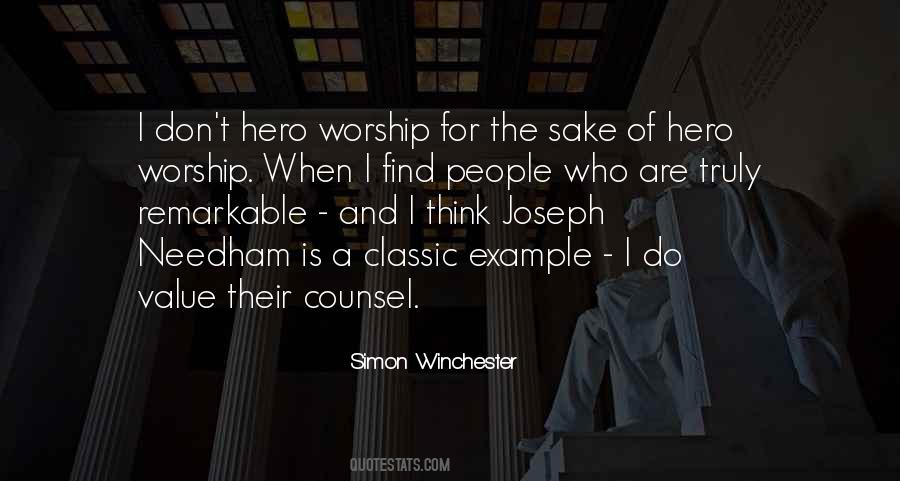
#29. Nothing is eternally stable, and even Kansas isn't really in Kansas anymore. The earth is in a constant state of flux.
Simon Winchester
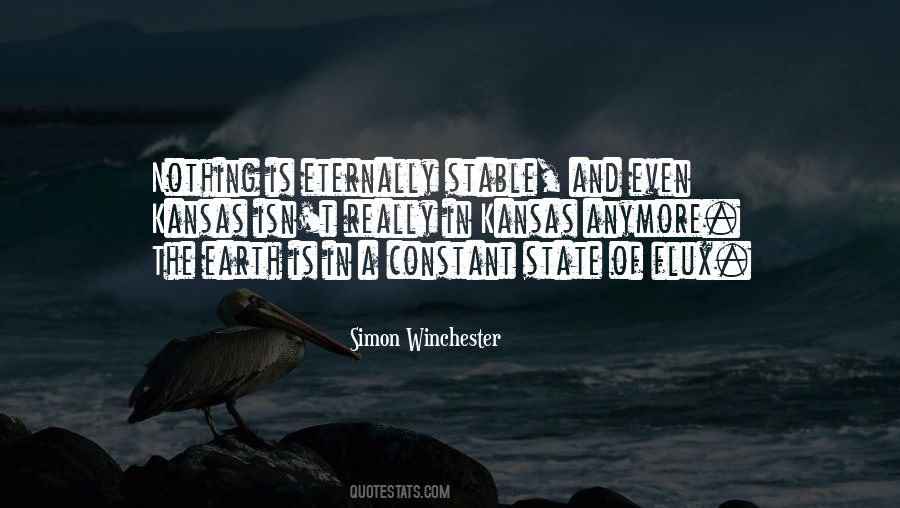
#30. Having been in the newspaper business for a long, long time, I often wonder, Why do we actually need to know about something like a bus crash in Bangladesh that has no effect on us at all? That can be nothing other than voyeurism.
Simon Winchester
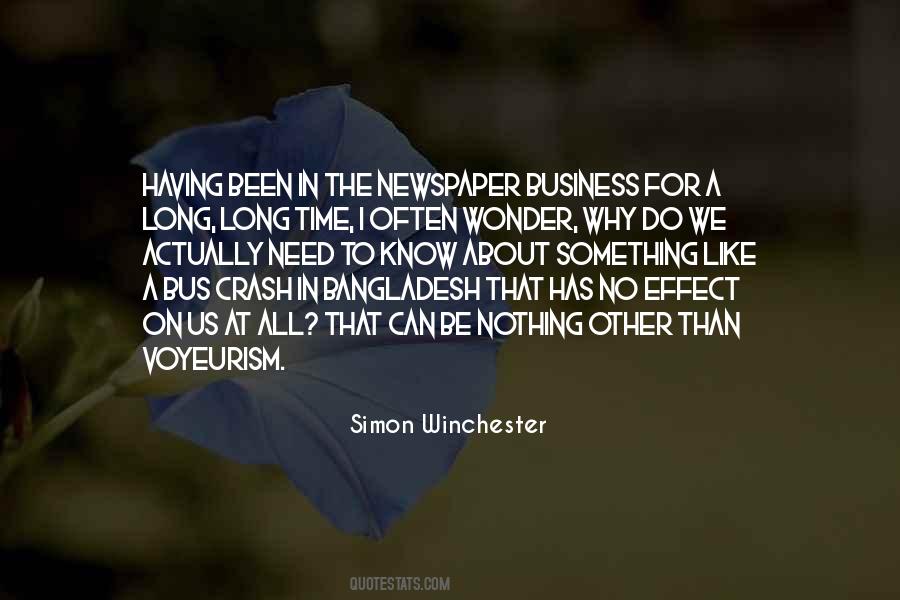
#31. I've come to accept who my readers turn out to be, rather than having some sort of demographic target.
Simon Winchester
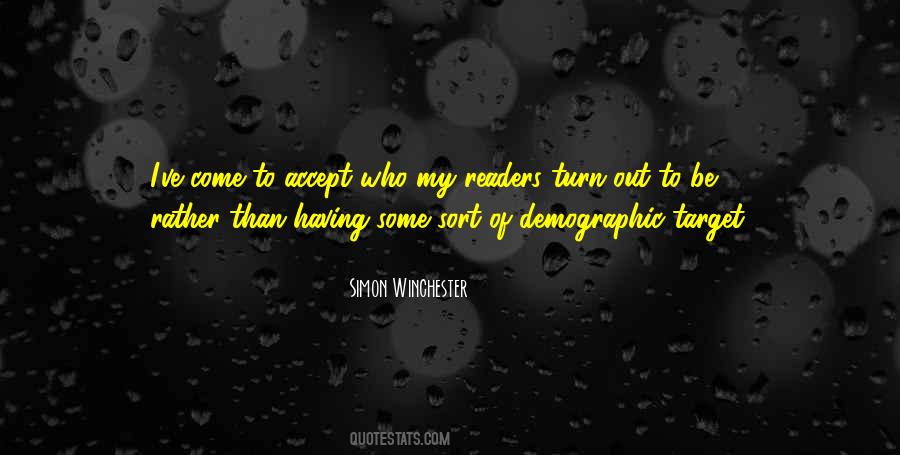
#32. We kid ourselves that we're trying to be empathetic with the human condition from a distance, but I don't think that is it at all. It's stupid; it's a waste of time. But when the earth flexes its muscles, that's rather different. That's a powerful reminder of where we are.
Simon Winchester
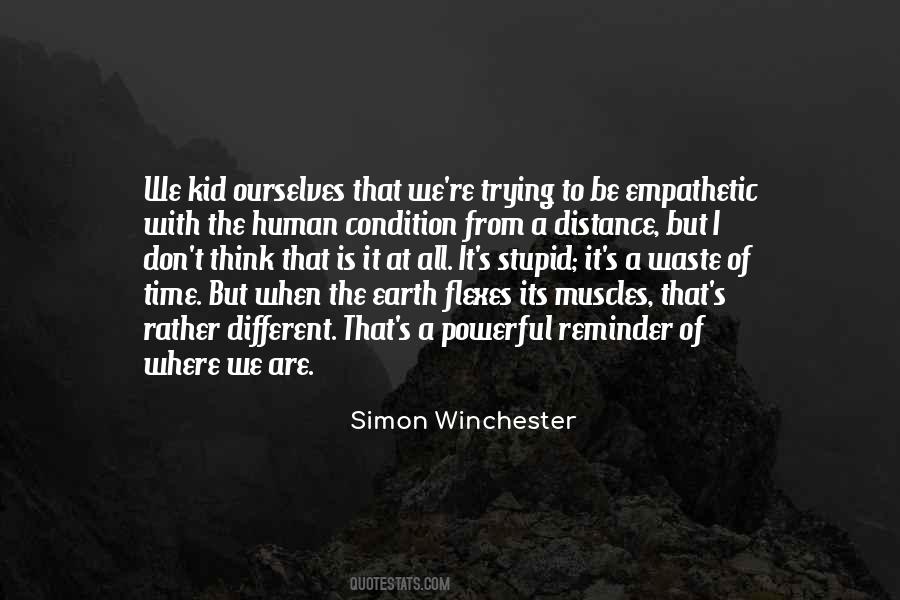
Famous Authors
Popular Topics
Scroll to Top




































